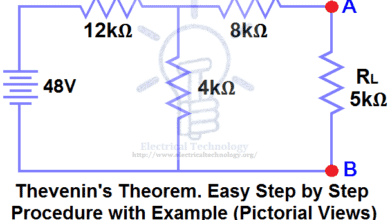Why is Live Line-Washing or Cleaning Done on Energized Power Lines?
Importance of Live-Line Washing, Live-Line Maintenance or Cleaning
What is Live-Line Washing?
Live-line washing, also known as live-line maintenance or live-line working, is a technique used in the maintenance of high-voltage power lines. It involves cleaning and, in some cases, applying protective coatings to the insulators and other components of the power lines. The process is done while the electricity is still ON and the lines are energized and in operation.
Live-line washing, also known as live line maintenance or insulator washing, is a process used in electrical power systems to clean and maintain insulators and conductors while the system is energized.
Live-line cleaning is done to ensure the reliability and safety of the power transmission system without the need to power down or de-energize the lines, which would result in a loss of power to customers. This approach is applied where maintaining an uninterrupted power supply is necessary for sensitive applications such as security and military applications, computer servers, security cameras, etc.

Why Do We Need Live Line Cleaning?
Here are some reasons and advantages of why live line-maintenance is necessary:
- Prevention of Pollution Flashovers: Insulators can accumulate dirt, dust, pollution, and other contaminants over time. These circumstances can lead to flashovers (unintended electrical discharges). Live line cleaning removes these contaminants, reducing the risk of flashovers and improving the reliability of the electrical system.
- Maintenance of Insulator Performance: Contaminants on insulators can reduce their electrical resistance, which can compromise their ability to insulate the conductors properly. Cleaning the insulators helps maintain their performance and prolong their lifespan.
- Cost-Effectiveness: Performing maintenance on live lines eliminates the need to de-energize the electrical system, which can be costly and disruptive. Live line working allows maintenance work to be carried out efficiently without interrupting power supply to customers.
- Safety: Live line maintenance is performed by trained professionals using specialized equipment and procedures to ensure safety. It allows maintenance work to be done without the need for workers to come into direct contact with energized components, reducing the risk of electrical accidents.
- Compliance with Regulatory Requirements: Some regulatory authorities require utilities to perform regular maintenance, including insulator washing, to ensure the reliability and safety of electrical power system. Live line insulators washing helps utilities comply with these requirements.

Methods of Live-Line Washing
Live line-washing is a specialized and potentially dangerous operation that requires skilled personnel and specialized equipment. The following different approaches are used to wash the power lines while electricity is still ON.
- Helicopter washing: Using a helicopter equipped with washing equipment to access and clean the power lines from the air.
- Bucket truck washing: Using specialized trucks with extendable buckets to reach the power lines and wash them.
- Water spraying: Directly spraying water or a cleaning solution onto the power lines using hoses or nozzles.
- Robotic systems: Using automatic and smart robotic arms or devices to clean the power lines without direct human intervention.
- Chemical cleaning: Applying specialized chemicals to the power lines to remove contaminants or dirt.
- Manual cleaning: Involves workers physically climbing the power lines using safety equipment to clean them.
Related Short Questions and Answers about Power System:
- Will a Man Get an Electric Shock If He Hangs on a Live Wire?
- How Does Temperature Impact Sag in Overhead Lines?
- What is the Minimum Ground Clearance for Overhead Power Line?
- What is the Power Angle in a Power Transmission Line?
- Why are Overhead Power Lines Loose on Electric Poles & Towers?
- How Many Poles and Towers are Situated Within a 1-km Span?
- Why are Overhead Power Transmission Lines Not Insulated?
- Why Don’t Birds and Squirrels Get Electrocuted on Power Lines?
- Skin Effect and Factors Affecting Skin Effect in Power Lines
- Ferranti Effect in Power Lines – Causes, Advantages & Disadvantages
- Corona Effect & Discharge in Transmission Lines & Power System
- What is the Purpose of Ground Wire in Overhead Transmission Lines?
- Why is the Grounding Wire Bare and Not Insulated?
- Why is Power Transmitted at High Voltage Instead of High Current?
- Why is the Ground Wire Always Positioned Above the Overhead Power Lines?








